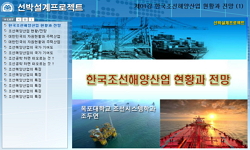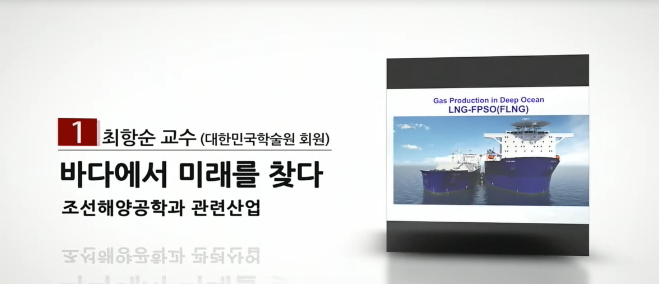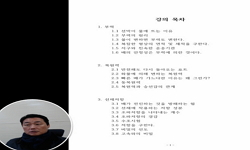한국의 국가는 직업훈련제도를 형성하고 운영하는 데 주도적인 역할을 해온 반면에, 경영자는 사내훈련에 소극적이며, 노동조합은 별다른 역할을 하지 못했다. 이러한 한국의 직업훈련제도...
http://chineseinput.net/에서 pinyin(병음)방식으로 중국어를 변환할 수 있습니다.
변환된 중국어를 복사하여 사용하시면 됩니다.
- 中文 을 입력하시려면 zhongwen을 입력하시고 space를누르시면됩니다.
- 北京 을 입력하시려면 beijing을 입력하시고 space를 누르시면 됩니다.

사내직업훈련제도의 전개 : 대한조선공사 사례를 중심으로 = The evolution of the plant-based job training institutions : a case study of the Korea Shipbuilding and Engineering Corporation
한글로보기https://www.riss.kr/link?id=A82319104
- 저자
- 발행기관
- 학술지명
- 권호사항
-
발행연도
2010
-
작성언어
Korean
- 주제어
-
KDC
331
-
등재정보
KCI등재
-
자료형태
학술저널
-
수록면
157-196(40쪽)
- 제공처
-
0
상세조회 -
0
다운로드
부가정보
국문 초록 (Abstract)
한국의 국가는 직업훈련제도를 형성하고 운영하는 데 주도적인 역할을 해온 반면에, 경영자는 사내훈련에 소극적이며, 노동조합은 별다른 역할을 하지 못했다. 이러한 한국의 직업훈련제도의 특성과 당사자들의 행위 유형이 어떻게 형성되었는가를 대한조선공사 사례를 통해서 살펴보았다. 식민지 시기에 전시하 숙련노동력 부족에 대처하기 위하여 조선총독부 주도로 사내직업훈련이 실시되었다. 대한조선공사의 사내훈련 기관은 1939년에 기술원양성소에서 출발하여 1950년대의 조선고등기술학교, 1960년대의 기술원양성소, 1970년대의 사내직업훈련소로 발전해왔다. 그런데 이러한 사내훈련은 저숙련균형의 함정에서 벗어날 수 없었다. 경영자는 양성공의 숙련향상에 많은 투자를 하지 않았고, 이들을 주로 저임금 노동력으로 활용하려 하였다. 이에 따라 노동조합운동이 고양되는 시점에서는 훈련소 출신 노동자들의 처우개선 요구가 표출되었고, 이들의 요구를 대변할 기구가 없는 상황에서는 이들은 이직을 선택하였다. 결국, 한국 조선산업의 직업훈련제도는 통용가능한 숙련이 존재하는 상황에서 저숙련균형에서 벗어날 수 있는 독일과 같은 집단주의적 해결책이나 일본과 같은 개별 기업수준의 해결책을 모두 실현하지 못하고 있는 것으로 보인다.
다국어 초록 (Multilingual Abstract)
The Korean Government has played a leading role in creating and administrating the plant-based job training institutions, while the Korean managers have been so passive in skill formation institutions. And the Korean trade union movements have exerted...
The Korean Government has played a leading role in creating and administrating the plant-based job training institutions, while the Korean managers have been so passive in skill formation institutions. And the Korean trade union movements have exerted no influence on those institutions. This paper deals with the evolution of the plant-based job training system focusing on the KSEC, with a view to find out the way in which the contemporary Korean job training institutions have been established. The colonial Japanese government had instituted the plant-based training system to cope with the skill shortages during the Pacific War. The first plant-based job training center of the KSEC was opened in 1939. Thereafter were there various institutions such as the shipbuilding technical high school in 1950s and the training center for skilled workers in 1960s and the plant-based job training center in 1970s. Despite a number of in-plant training facilities, a type of low skill equilibrium was reproduced continuously as the skills of the shipbuilding workers were transferable. Managers of the KSEC did not invest so much on the trainees and saw them only as sources of cheap labor. Thus workers, employed after completing the plant-based job training program, made demands for improvement of their labor conditions whenever the labor movement was strengthened as in the late 1960s and as in 1987. And they moved on to other shipyards when it was not possible for them to express their demands through organizations. It seems that Korean shipbuilding firms have not succeeded in establishing either the collectivist solution of the German skill formation system or the segmentalist one of the Japanese system to provide for transferable skills enough.
목차 (Table of Contents)
- 국문요약
- 1. 머리글
- 2. 초기 산업화와 사내직업훈련의 실시
- 3. 국가주도 직업훈련제도의 구축
- 4. 조선산업의 성장과 사내직업훈련의 확대
- 국문요약
- 1. 머리글
- 2. 초기 산업화와 사내직업훈련의 실시
- 3. 국가주도 직업훈련제도의 구축
- 4. 조선산업의 성장과 사내직업훈련의 확대
- 5. 맺음말
- 참고문헌
동일학술지(권/호) 다른 논문
-
- 한국사회사학회
- 김준(Kim Jun)
- 2010
- KCI등재
-
- 한국사회사학회
- 정준영(JUNG Joon Young)
- 2010
- KCI등재
-
- 한국사회사학회
- 윤민재(Yoon Min Jae)
- 2010
- KCI등재
-
한국 산업화 시기 노동자의 생애와 사건: 기억의 재구성과 노동자 정체성의 형성
- 한국사회사학회
- 김경일 ( Keong Il Kim )
- 2010
- KCI등재




 ScienceON
ScienceON KISS
KISS





